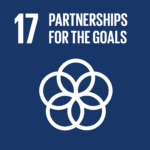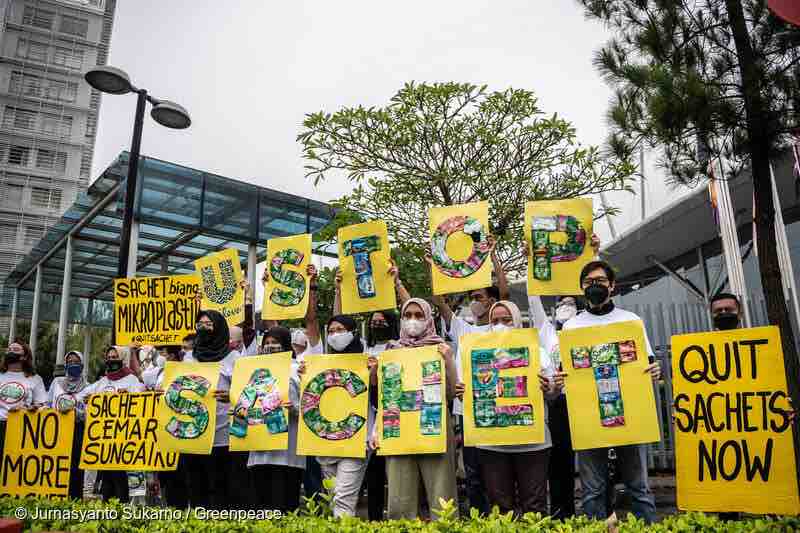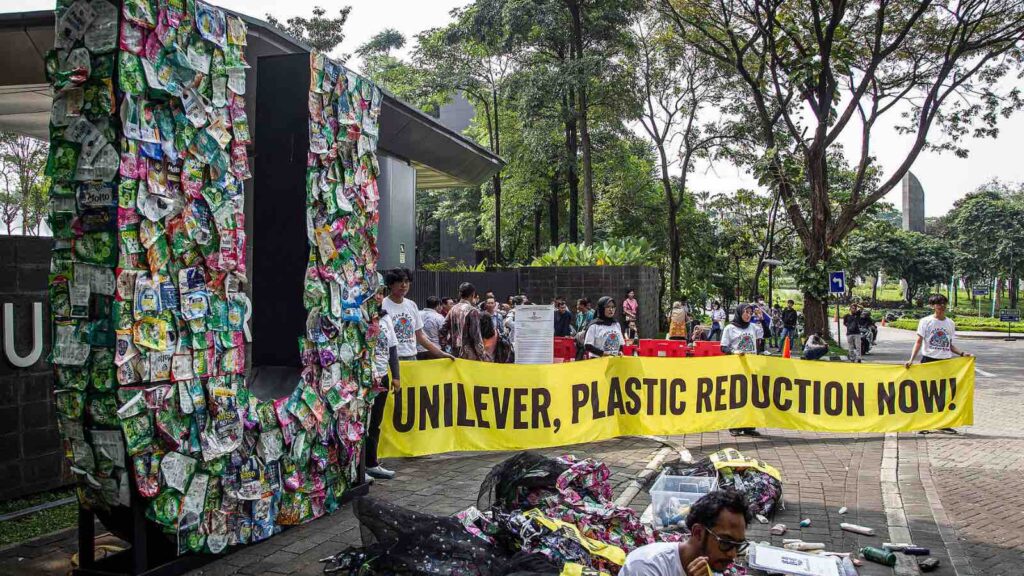Greenpeace Indonesia and Zero Waste Indonesia Alliance ((AZWI) hold a protest during the Unilever Annual General Meeting (AGM) in Serpong, Banten; urgeding Unilever and its shareholders to stop their plastic waste, especially the sachet packaging that became the number one polluter in the river and the sea.
JAKARTA — In a bold move to highlight corporate responsibility for plastic pollution, Greenpeace activists returned 1,851 pieces of Unilever-branded plastic waste to the company’s Indonesian headquarters on Thursday. The protest, which involved arranging the collected trash into a giant ‘U’ logo in front of Unilever’s office in Green Office Park, BSD City, Tangerang, marks a crescendo in the environmental group’s week-long campaign to hold the consumer goods giant accountable for its plastic footprint.
RELEVANT SUSTAINABLE GOALS



How Single Serving Sachets Became An Environmental Scourge
Unilever, a behemoth in the Fast-Moving Consumer Goods (FMCG) sector, has consistently ranked among the top polluters in Brand Audit reports over the past five years, both nationally and globally. A recent audit across four Southeast Asian countries, including Indonesia, identified Unilever as the leading polluter, with 1,851 single-use plastic packages found.
The company’s global production of sachets is staggering, with plans to sell 53 billion units this year — equivalent to 1,700 sachets per second. This comes as Unilever globally backtracks on its previous commitment to reduce virgin plastic use by 50% by 2025, now aiming for a more modest 30% reduction by 2026.
“It’s time to hold Unilever accountable as one of the world’s largest FMCG producers, to seriously pursue their plastic reduction production commitments, and urge them to disclose their waste reduction roadmap,” said Ibar Akbar, Plastic Project Lead at Greenpeace Indonesia.

The protest underscores the disconnect between Unilever’s stated desire for a ‘waste-free world’ and the reality that 99.8% of its plastic packaging is currently single-use. Greenpeace analysis suggests that at the current rate, it would take until beyond the year 3000 for 100% of Unilever’s plastic products to be reusable.
This action comes against the backdrop of Indonesia’s Ministry of Environment and Forestry Regulation No. 75 of 2019, which mandates producers, including manufacturing industries, to create roadmaps for reducing packaging waste by 30%. However, progress has been slow, with only 18 out of 42 producers having initiated pilot projects based on their roadmap documents.
The sachet problem is particularly acute in Southeast Asia, where consumption is projected to reach 1.3 trillion sachets sold annually by 2027, nearly half the global share. Environmental activists argue that without commitments to reduce production and transparency in waste reduction progress, sachet waste will continue to burden the environment.
As negotiations for a global plastics treaty continue, Greenpeace and other environmental groups see this as a critical opportunity to address the plastic crisis. They emphasize the importance of a strong and ambitious global plastic agreement to reduce plastic production and push businesses away from single-use plastics towards reusable systems.
Lead image courtesy of Greenpeace Indonesia
You may also be interested in :
Thailand Ramps Up Recycling Efforts For UHT Cartons With Nationwide Initiative


